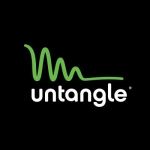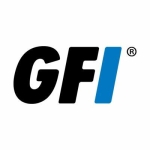What is our primary use case?
We primarily use the solution for LAN connections.
What is most valuable?
The solution has similar attributes to other competitors.
The encryption detection is good.
In terms of administration, it's perfect.
What needs improvement?
The encryption detection could be improved. In my opinion, I think Sophos has better encryption detection than this solution.
The security of the solution could be better.
The interface needs to be updated and simplified.
The management could be more in-depth or clear.
For how long have I used the solution?
I've been using the solution for close to a year now. I've also been working with Fortigate's firewall solution for about two and a half years.
What do I think about the stability of the solution?
We haven't faced any issues with stability since I've been with the company. I haven't witnessed any bugs or glitches. Our organization is satisfied with the level of stability it has provided.
What do I think about the scalability of the solution?
About 50% of our network users are currently on the solution. For the two companies that we have on the solution currently, there's probably 100 users in each company that use the solution.
How are customer service and technical support?
I personally have never been in touch with technical support for Fortigate. I can't speak to any kind of experience. I have heard good reviews from other people, however.
Which solution did I use previously and why did I switch?
I've used Sophos in the past.
There are some technical issues with Sophos, at least on the older version, but with XG they kind-of did an upgrade. The interface of Sophos is great. It makes it easy to manage. In terms of functionality, both Fortigate and Sophos are very good and have almost the same functionality. It does depend on the license you apply for, however.
If you subscribe to Sandstorm in Sophos, you should expect that you get the functionality of Sandstorm.
They are both quite equal on the market for the most part.
How was the initial setup?
In terms of the initial setup, a vendor did that for us. We just manage it. The solution was already in place before I started at the company. I don't have details in relation to its initial complexity or how long it took.
What about the implementation team?
Our vendor set up the solution for us.
What's my experience with pricing, setup cost, and licensing?
At this time, I'm unsure of what the costs related to the solution are. It's my understanding that support is part of the OEM fee and you do have to pay that yearly. However, it does depend on the arrangements with the OEM.
Which other solutions did I evaluate?
We did look at Barracuda, but we decided against them because it gets a bit too technical. Also, unlike Sophos, for example, you can't pick the license you want and instead have to buy a package that may include things you don't need. Barracuda's interface looks like something designed in the 90s as well, which was a turn-off.
What other advice do I have?
We used to be on the cloud, but we phased it out more than a year ago.
I'd recommend the solution. It's one of the best on the market. It's great for financial services institutions. Security is important because of the type of companies that are typically dealing with it.
I'd advise that users use it within a firewall, to create a double layer of protection or something similar.
I'd rate the solution eight out of ten, especially when comparing it to other solutions.
Which deployment model are you using for this solution?
On-premises
Disclosure: I am a real user, and this review is based on my own experience and opinions.

















